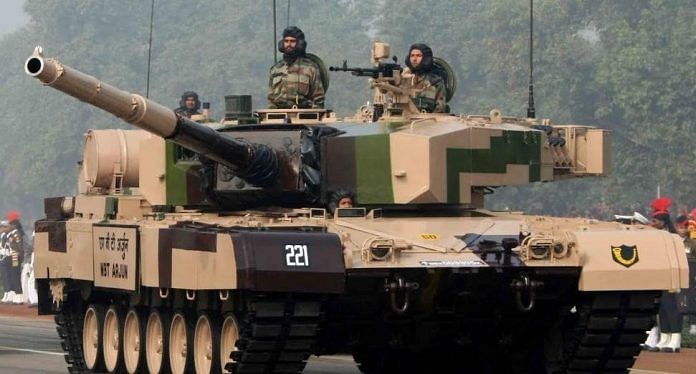Responding to ThePrint Opinion piece ‘Ammunition shortages arose because generals prioritised flashy, ‘status’ items like tanks‘ (by Abhijit Iyer-Mitra, published on 16 August 2017) Indian Army PRO Col. Aman Anand writes:
The article is malicious, defamatory, lacks objectivity and is replete with factual inconsistencies. It shows a clear disconnect in the comprehension of the author about matters related to national security and force structuring.
The article says, “accumulate tanks, rather than building up stocks of ammunition for those tanks to fire”. Such requirements are established and processed through well-integrated military and government mechanisms. Unless the necessities are established and prioritised, the cases are not initiated. The Indian Army has a robust and competent system to assess the requirements and prioritise them.
The article says, “Not one general, however, wanted to give up part of this outlay for a robust improvement to the Ordinance Factory Board (OFB) capabilities in order to deliver ammunition in time”. This is an incorrect indication of the commitment of an organisation to the national cause and the pitch of the article is aimed to demean a rank and an organisation.
The article says, “Finally, we must equally realise that wars are no longer won by the army – but rather by air forces and navies”. Obviously the author lacks fundamental ideas of “spectrum of conflict, application of forces and military objectives of war and their interplay”. There is need for the author to understand synergistic application of forces in a theatre of war in the Indian context. Moreover, armed forces are maintained not just to win wars but also to prevent wars.
The article says, “However, in the Indian case, it was the Army that was willing to let massive shortages accrue in a dangerous game of brinksmanship, trying to extract more money from the bureaucracy”. Such views indicate a selective leak made by some interested party to influence the cases under progress by Indian Army or to play mischief.
Abhijit Iyer-Mitra replies:
The letter is a classic case of obfuscation that uses jargon and personal invective to hide the lack of facts to counter the article.
“The author does not understand national security” logic is a canard every state organ has used, and it is sad that the army of a democratic state such as India has to resort to this.
One has to wonder how a Rs 40,000 crore shortage arose if the system was “robust and competent”. The Army rebuttal refuses to give details of this procurement system and how the shortfall arose.
The rebuttal claims that use of the word “general” is intended to “selectively demean a rank and an organisation”. The intent of that paragraph was that the Army high commands (colloquially generals) simply aren’t willing to allocate resources to ammunition, and as such is simply an attempt to deflect from the argument.
The entire developed world, and now China, has moved to aero-naval centrism, culling their army, while expanding their roles and power projection significantly. The Indian Army, it appears, is refusing to learn from the experiences of others who are engaged in near-continuous warfare for the last two decades.
Finally, instead of seeing phantoms of “interested party to influence the cases”, the Army should push to investigate and allocate specific blame on all those responsible for the Rs 40,000 crore ammunition shortage over the last decade.




Mr abhijit
I can tell that you are off the mark and whose bidding you are doing everyone knows
A recent, very detailed CAG report, which said that the ammunition stock would suffice for a ten day war, is bound to cause concern, especially at a time of heightened tension. Wherever systems for procurement can be further improved, this should be done, quietly, but with a sense of urgency.